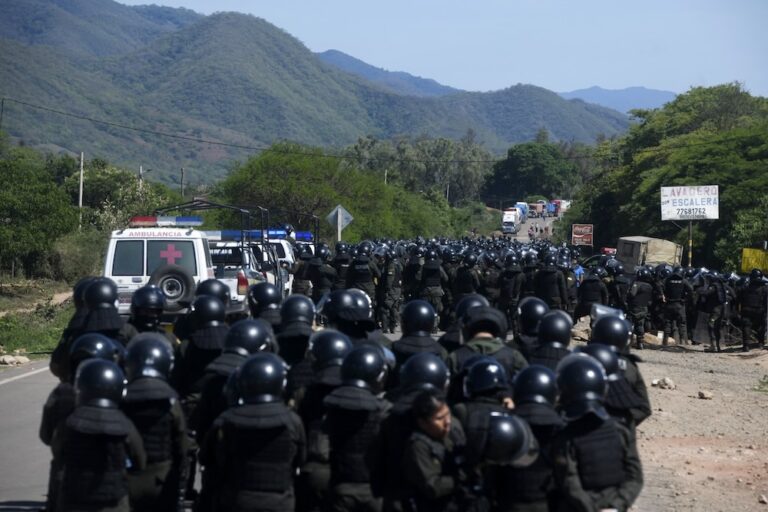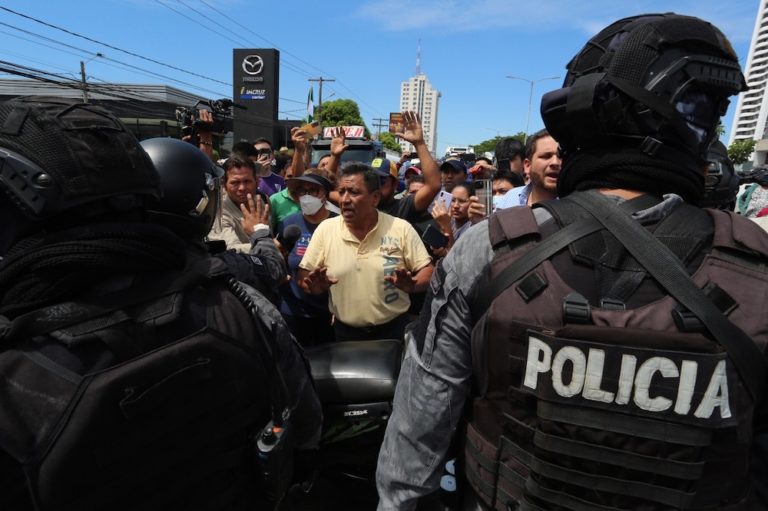RSF condemned the army's refusal to allow access to part of the archives of the military dictatorships on the crucial subject of disappearances.
(RSF/IFEX) – On 18 February 2010, Reporters Without Borders condemned as outrageous the refusal by the army chief of staff to give way to a prosecutor’s request for access to part of the archives of the military dictatorships on the crucial subject of disappearances.
“We support the initiative of the Evo Morales government, announced this week, to declassify military files relating to a period on which light should be shed and which journalists and citizens have the right to be informed about. The army must give way to the demands of access to information”, the worldwide press freedom organisation said.
A civil commission, headed by prosecutor Milton Mendoza, is investigating 156 disappearances during the era of Bolivia’s military regimes, particularly of General Hugo Banzer (1971-1978) and Colonel Luis García Meza (1980-1981). On 17 February, Mendoza went to the army chief of staff headquarters in La Paz and came out one hour later complaining of an “obstruction of the investigation process” on the part of the high command.
The same day, shortly after the unsuccessful visit, defence minister, Rubén Saavedra, stressed that the armed forces had received a judicial instruction obliging them to cooperate. The law has therefore been flouted.
Most of the disappearances took place under the dictatorship of Luis García Meza, who took power in a coup in July 1980. He was sentenced to 30 years for these crimes and has been in jail for 13 years.
It is essential that all the countries previously under the yoke of the Condor Plan (Argentina, Bolivia, Brazil, Chile, Paraguay, and Uruguay) pass access to information legislation requiring their military institutions to respond to requests from the press, the justice system and civil society organisations. It is not just a question of the freedom to inform but also of collective memory.
Argentina took this step on 6 January 2010 through a government decree. In Brazil, the government-sponsored “Historical Memory Project” has led to a partial declassification of military archives while awaiting a global law. In Uruguay, access to information has been eased by a law passed in 2008 but the press continues to come up against obstructions and hostility of an army that remains reluctant to see the airing of past crimes.


